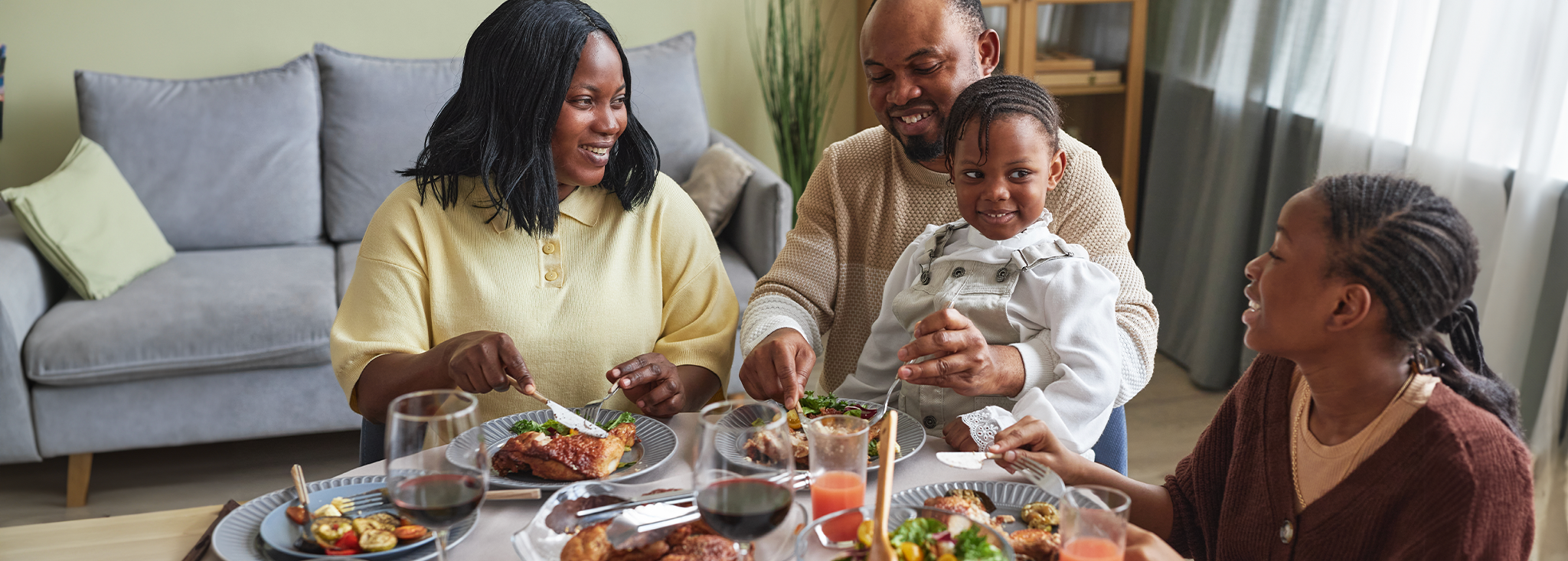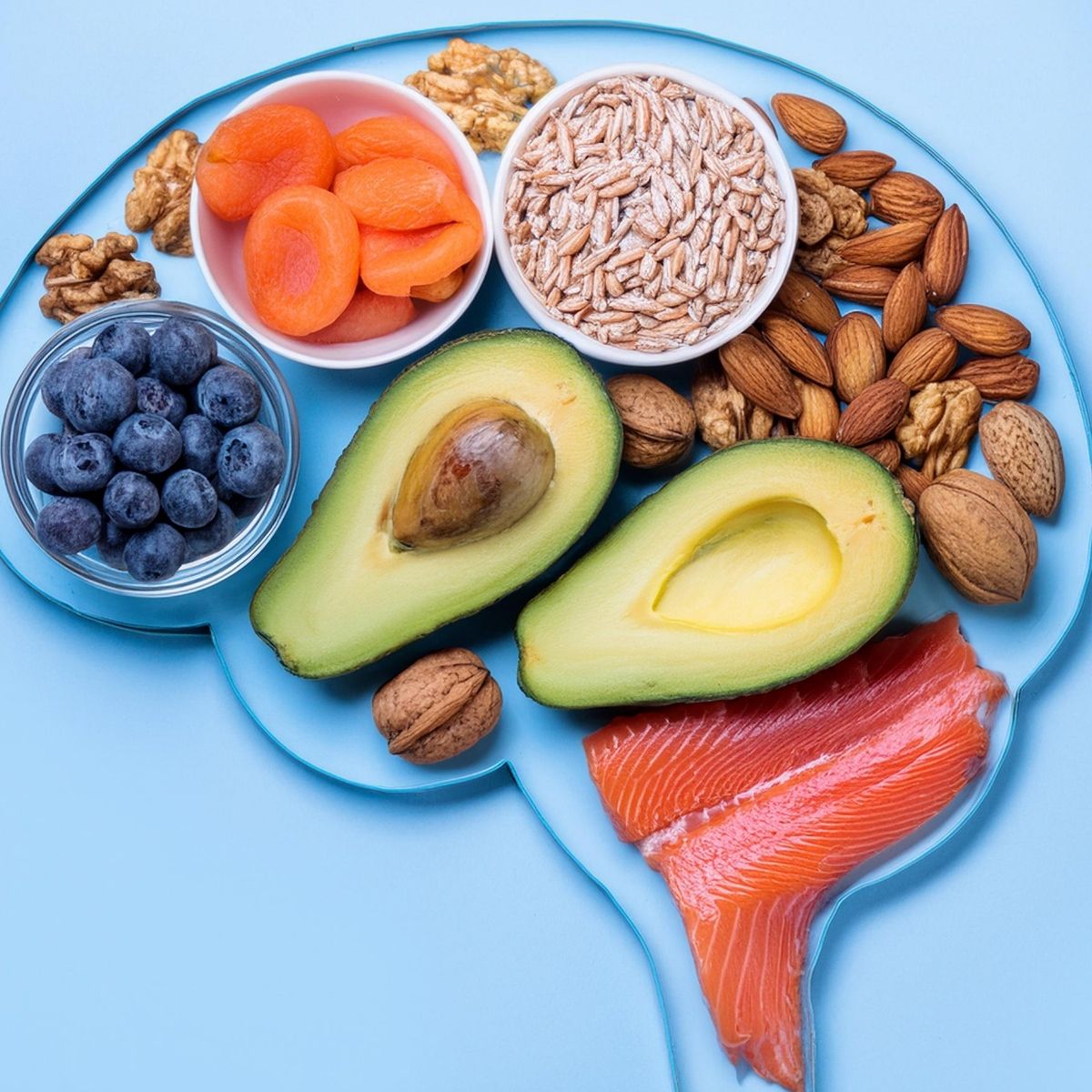Navigating the BBQ with Diabetes
Written by: Beyond Type 1 Editorial Team
3 minute read
May 16, 2016
It's BBQ time. Yet another gathering that revolves around food — and maybe a sprinkler — but don't sweat it. Navigating the BBQ with type 1 diabetes can be as easy as pie. Beyond Type 1 has you covered from basic tips to what to expect from the most common foods.
Note: This is part of our library of resources on Food. Learn more about dietary recommendations from nutritionists and foodies alike on our Food page!
When the days are longer and the weather is warm, neighbor’s backyards are coming to life. Lift up those aluminum lids and light up. It’s BBQ time. Yet another gathering that revolves around food—and maybe a sprinkler—but don’t sweat it. Navigating the BBQ with type 1 diabetes can be as easy as pie. Beyond Type 1 has you covered from basic tips to what to expect from the most common foods.
Stay Hydrated
Especially with warm weather, you run the risk of dehydrating, which can send blood glucose levels high. To combat this, make sure to drink plenty of water and especially between alcoholic beverages. (Read our Drinking with Diabetes Chart.) Kitchen faucet, garden hose, sprinkler—you know where to find that elixir of life. Even staying cool in the shade can help with this, as opposed to baking in the hot sun.
Bring Homemade Food
Especially if you are going to someone else’s home, this allows you to control what your food options are. Most BBQs are potluck styled anyway! So, bring your favorite dish that you’ve already carb counted for and know how it affects your body. Also, pre-made food items from the store can have hidden sugars and fats and these are unwanted surprises.
Avoid sugar-free foods
Sugar alcohols are in sugar-free food, especially in desserts, and can upset your stomach and even give you diarrhea. Remember also, just because it says “sugar-free,” it doesn’t mean it’s “carb-free.” Duh.
Indulge but don’t over do it
BBQ usually call for grazing, but you don’t have to eat until the cows come home. Eliminate your stress and plan ahead for what you want to eat, so you can enjoy all the other activities that come with the social gathering.
Stay active
To counteract highs, get moving. There’s bound to be a volleyball game afoot or some version of bad mitten and table tennis. If you’re outside, there should be plenty of options to counteract those BBQ fixings!
The BBQ Food
We’ve detailed the top 10 foods you’re most likely to come across at the American BBQ so you can prepare ahead of time.
Glycemic Index
The ADA describes the Glycemic Index (GI) as “a measurement of how a carbohydrate-containing food raises blood glucose.” This glycemic index is vital in helping to determine how a food will affect one’s blood sugar. Carbohydrates with a low GI value (55 or less) are digested at a slower rate, therefore they cause a lower and slower rise in blood sugar levels.
*These are approximations. Also read food labels when available for the most accurate nutritional information.
Hamburger (meat)
- Total Fat: 23% DV
- Saturated Fat: 29% DV
- Carb Count: 0g
- GI: 0
White Bun (for Hamburger and Hot Dog)
- Total Fat: 2%
- Carb Count: 21g
- GI: 73
Hot dog (meat)
- Total Fat: 21% DV
- Saturated fat: 28% DV
- Carb Count: 1.3g
- GI: 40
White Bun (for Hamburger and Hot Dog)
- Total Fat: 2%
- Carb Count: 21g
- GI: 73
Ketchup (1 tbsp)
- Total Fat: 1% DV
- Carb Count: 4g
- GI: 55
Mustard (1 tbsp)
- Total Fat: 1% DV
- Carb Count: 1g
- GI: very low/negligible
Mayonaise (1tbsp)
- Total Fat: 7% DV
- Carb Count: 1g
- GI: 0
Potato Salad
- Total Fat: 16% DV
- Saturated Fat: 9% DV
- Carb Count: 35.7g
- GI: (potato= 50) *Note: if potato salad is made the day before and tossed in a vinegar dressing, it will have a much lower glycemic index than hot potatoes. This is because the cold temperature will increase resistance to starch content and acid will slow stomach emptying.
Corn on the Cobb
- Total Fat: 2% DV
- Carb Count: 17g
- GI: 60
Watermelon
- Total Fat: 0% DV
- Carb Count: 11.6g
- GI: 72 *Note: seemingly just made up of water, this summer fruit has an extremely high glycemic index
Peach Pie
- Total Fat: 18% DV
- Saturated Fat: 9% DV
- Carb Count: 31.5g
- GI: (peach = 28) (white sugar = 68) (pie crust = 40)
Beer (Corona Pale Lager)
- Total Fat: 0% DV
- Carb Count: 14g
- GI: <15
- GI: 40
For more on food and T1D click here

Author
Beyond Type 1 Editorial Team
Beyond Type 1 is the largest diabetes org online, funding advocacy, education and cure research. Find industry news, inspirational stories and practical help. Join the 1M+ strong community and discover what it means to #LiveBeyond a diabetes diagnosis.
Related Resources

Between the rising cost of food, paying for diabetes medications and other living expenses, you...
Read more

News Highlights The American Academy of Pediatrics (AAP) released new guidelines against the ketogenic diet...
Read more

Life gets busy. From working 40+ hours a week to running errands and attending different...
Read more

